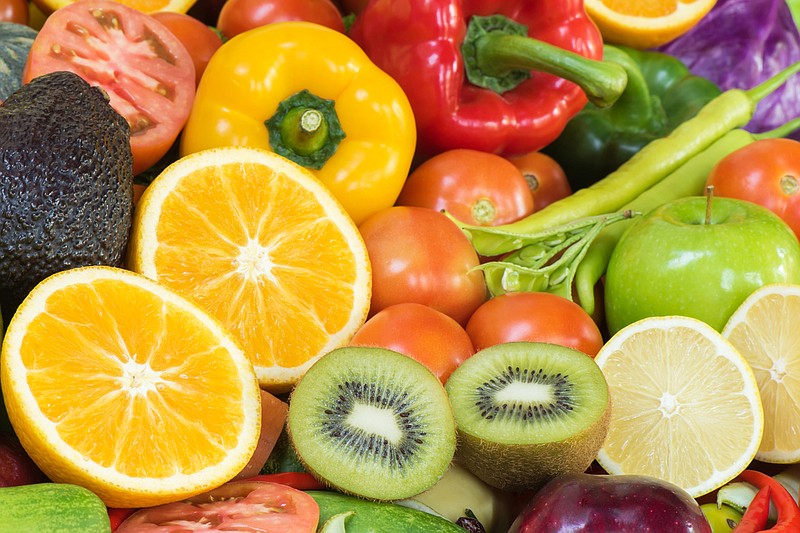Fifteen years ago this summer, my wife and I stopped eating meat.
At the time, we'd been reading "Dominion," by Matthew Scully, a Christian and former White House Republican.
"When a quarter million birds are stuffed into a single shed, unable even to flap their wings, when more than a million pigs inhabit a single farm, never once stepping into the light of day, when every year tens of millions of creatures go to their death without knowing the least measure of human kindness, it is time to question old assumptions, to ask what we are doing and what spirit drives us on," Scully writes.
With sudden clarity, we knew that eating processed, factory-farmed meat meant we supported such cruelty.
Fortuitously, we'd also completed a week-long backpacking trip with Outward Bound - no meat was served, which kick-started our vegetarianism.
Minus some hidden fatback here and there, we have not knowingly eaten meat since. Neither have our children.
At first, our vegetarianism was somewhat of a burden. For many, especially in the South, we were the first non-meat-eaters anyone had ever met.
"You're what?" people chided. "Are you crazy?"
"What about protein?" the refrain went.
"If God didn't want us to eat meat, he shouldn't have made it taste so good," joked others.
Fifteen years later, our vegetarianism is a joy.
That's why I write this today - on Earth Day - not as a summons or self-righteous guilt trip or to shame and stress.
But as an invitation.
Eating less meat feels good.
Perhaps cold-turkey vegetarianism isn't for you; but refusing meat one day a week could be.
Why?
-Processed meat is part of our health crisis.
"Evidence is mounting that high consumption of red and mainly processed meat is unhealthy to humans and is related to chronic diseases such as cancer, type 2 diabetes, and cardiovascular disease," reports The Guardian.
(A distinction here: supermarket, fast-food meat is not to be confused with healthy meat originating from animals cared for and slaughtered by responsible and compassionate ranchers and farmers. There are nightmare farms, and also idllyic, trustworthy farms. The two are not to be confused.)
-Processed meat is part of our ecological crisis.
"Agriculture is among the greatest contributors to global warming, emitting more greenhouse gases than all our cars, trucks, trains, and airplanes combined - largely from methane released by cattle and rice farms, nitrous oxide from fertilized fields, and carbon dioxide from the cutting of rain forests to grow crops or raise livestock," proclaims National Geographic in its compelling article, "Feeding Nine Billion: a Five Step Plan to Feed the World."
-Processed meat is part of our spiritual and moral crisis.
In 2015, more than 9 billion animals were slaughtered in the U.S., according to government data.
The quality of their lives and deaths is a judgment on our society.
"Go into the largest livestock operation, search out the darkest and tiniest stall or pen, single out the filthiest, most forlorn little lamb or pig or calf, and that is one of God's creatures you're looking at, morally indistinguishable from your beloved Fluffy or Frisky," Scully writes.
Eating less meat allows us to align more of our morals and values with our diets and plates. The bell curve of initial discomfort - I could never give up meat!?! - one day passes into a quiet peace and ease, knowing we have found a way to contribute to the well-being of others and ourselves.
Eating less meat helps us see the ways meat is politicized in our culture, as a hamburger is rarely just a hamburger; just look at any Hardee's commercials. Kale, a superfood packed with nutrients, is considered effeminate, while a half-pound bacon cheeseburger, dense with caloric harm, is code for masculine toughness.
Thankfully, this is changing.
From Tom Brady to the Tennessee Titans, NFL players, often seen as the prototypes for American masculinity, are embracing plant-based, vegetarian diets.
There are more vegetarian-friendly restaurants, chefs and grocers in Chattanooga than ever before. Easily, the most delicious and enjoyable meals of our life have been meat-free.
The website Chattavegan.com is a superior local resource, helpful on multiple levels. (Thank you.)
While God may have given humankind power and dominion over the animal kingdom, we were never meant to distort such authority into our current system of horrific cruelty and abuse that befalls billions of animals - sentient, companionable, worthy of dignity - each day in this country.
On behalf of vegetarians everywhere, I invite you to the table. There's more than enough room.
David Cook writes a Sunday column and can be reached at dcook@timesfreepress.com or 423-757-6329. Follow him on Facebook at DavidCookTFP.

